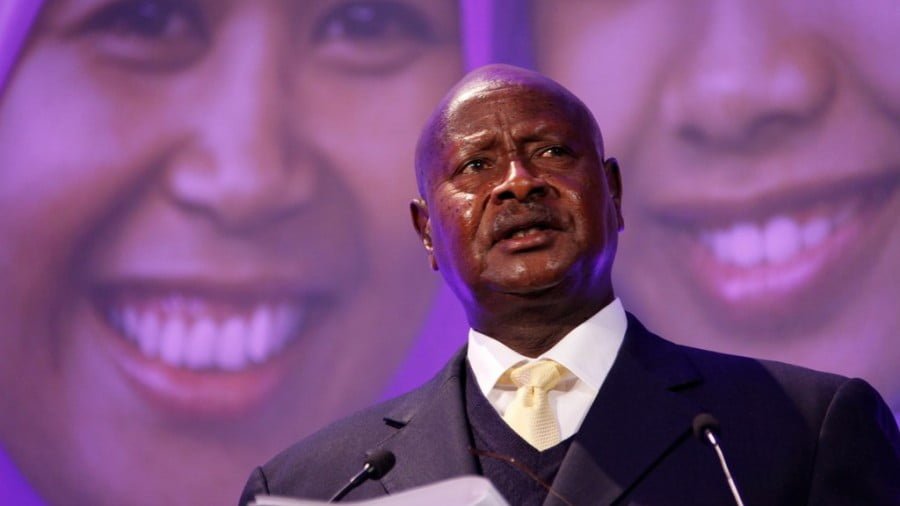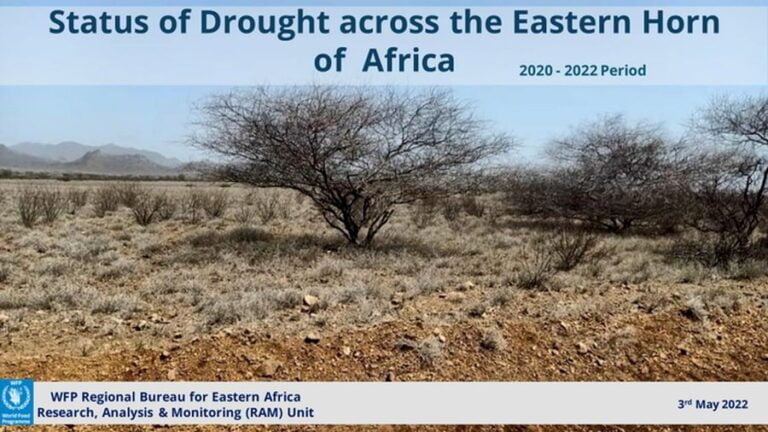Understanding the Unrest in Uganda: Hybrid War or Heartfelt Opposition?
The unrest in Uganda has all the hallmarks of an incipient Hybrid War, but it would be inaccurate at this point to jump the gun and allege that it’s the result of a US-encouraged regime change against a geostrategically significant Silk Road country.
From Pop Star To Politician And Now Prisoner
The arrest and reported beating of popular opposition politician Robert Kyagulanyi, a former pop star mostly known by his stage name as Bobi Wine, has rocked Uganda and caused many observers to wonder exactly what’s going on in the fast-developing landlocked state. Wine was apprehended by the authorities after an angry mob attacked the presidential convoy last week and triggered a violent reaction from the police that resulted in the death of his driver, who the politician alleged on Twitter at the time was killed because the state mistakenly thought he was him. Wine was initially charged with the illegal possession of firearms and ammunition, and his arrest prompted protests throughout the capital that saw onlookers document the police beating a Reuters journalist, an act which the government later apologized for.
Western Condemnation
Nevertheless, strong international condemnation over Wine’s arrest and the state’s reaction to the resultant protests put heavy pressure on the government to release him, though the state doubled down instead and replaced his original charges with treason. Moreover, the upsurge in attention given to Uganda because of the latest events encouraged many outsiders to scrutinize the political situation there, which has occasionally come under criticism in recent years. The country was most recently in the news over the summer because of its controversial social media tax that critics allege is an indirect way to censor freedom of political speech on these platforms through restrictive economic means, while the state views it as a creative revenue-generating strategy that’s also partially designed to stop the spread of fake news.
At the beginning of the year, Uganda enacted a law removing presidential term limits and widely interpreted as allowing the ageing 73-year-old President Yoweri Museveni, who’s been ruling the country through his National Resistance Movement (NRM) since the end of the civil war in 1986, to run again in 2021. It was also previously criticized by the West for promulgating a law against homosexuality in 2014 that originally included the death penalty for repeated offenses but was later reduced to life in prison upon revision. The increasing criticism against Museveni and his heavy-handed style of leadership over the country coincides with Uganda’s deepening relations with China, which envisions the East African state functioning as an integral transit location linking together its interconnected Standard Gauge Railway and Central Corridor projects in Kenya and Tanzania, respectively, with the Congo.
The Multipolar Factor
China’s Silk Road investments in Uganda also began to be criticized earlier this year and throughout the summer for supposedly being nothing more than a “debt trap”, a common narrative that’s become part and parcel of the US’ infowar against Beijing’s One Belt One Road (OBOR) global series of megaprojects. Whether legitimately true, exaggerated, or just fake news, these Silk Road concerns and the prior criticisms of Museveni’s leadership combine to represent a new American narrative towards Uganda, which previously used to be one of the US’ main African allies alongside neighboring Rwanda all throughout the Congo Wars and afterwards. These two countries are closely partnered with one another because of the deep bonds that their current leaders formed while supporting one another during their respective countries’ civil wars.
Some, however, have alleged that it’s also because Museveni is actually an ethnic Tutsi and therefore partial towards the post-war Tutsi-led minority government of Paul Kagame. Whatever the true reason may be, Uganda and Rwanda are fraternal states on the international level, and they’ve both recently gone from being the US’ primary regional proxies to venturing along the path of becoming pariahs because of their newfound relationships with China. Accordingly, Uganda and Rwanda have also expanded their ties with Russia as a result. On the surface, then, it would appear as though the destabilizing political events that recently transpired in Uganda might be signs of an incipient Hybrid War against its leadership for its apparent “rebalancing” from the US-led unipolar international system to the emerging Multipolar World Order being spearheaded by China and Russia.
Hybrid War Variables
Appearances can be deceiving, though, and while the US is undoubtedly exerting pressure on Uganda because of its aforementioned foreign policy actions, it would be inaccurate to frame the latest unrest as being purely the result of a US Hybrid War plan. There are many preexisting internal fault lines in the country that could naturally expand on their own without much or even any clandestine American interference, such as the ongoing threat from “Lord’s Resistance Army” (LRA) and “Allied Democratic Forces” (ADF) militants, the out-of-control crime wave that’s swept the country, the demographic explosion that’s poised to quintuple the country’s population by 2100, the ageing leadership’s authoritarian governing practices that contrast with the majority-youthful citizenry’s desire for political liberalism (the median age is 15 and people are usually very impressionable and eager for change at this time), and the debate over possibly reinstating federalism.
The author examined how some of these factors could come together to catalyze a Hybrid War in Uganda in his comprehensive December 2016 strategic risk analysis about how “Uganda’s Pivotal Future Could Be Undermined”, which should be reviewed by any readers who are interested in learning more about this fragile country’s specific challenges and how they could be manipulated for regime change purposes. That said, there’s plenty of evidence that the majority of Ugandans who have taken to the streets against their government aren’t doing so because they’re under any indirect American influence but because they’re genuinely upset at the course that Museveni and his NRM have placed the country on. This could certainly be taken advantage of by the US to pressure Kampala into enacting geostrategic concessions (“Regime Tweaking”) vis-à-vis its commitment to some Silk Road projects, but that has yet been seen.
Not As Clear-Cut As It Seems
The question therefore boils down to one of legitimacy, both the government’s and the opposition’s, with each camp having their own understanding of what’s currently happening in the country. The state wants to enforce law and order and has zero tolerance for any level of violence committed against its representatives, especially the President, and they accordingly emphasize that all political change must take place at the ballot box and not in the streets. The opposition, meanwhile, alleges that the government is an unpopular kleptocracy that rigs elections to remain in power and resorts to the disproportionate use of force to intimidate the citizenry into submission. Despite their differences, however, it can’t be denied that both sides do have some valid points, which makes it all the more difficult to render any across-the-board condemnation against either party.
The NRM brought stability after the civil war and wants to set an example that the law must always be obeyed, while the opposition is correct in asserting that political stagnation has set in and that Uganda is descending into a police state. External pressure has indeed been put on Museveni under the guise of “human rights” and “democracy” in order to coerce him into reconsidering his embrace of China, though the vast majority of the anti-government segment of the population has legitimate domestic grievances that have nothing to do with their country’s foreign policy. It can be argued that these people might be manipulated into unwittingly functioning as the US’ “useful idiots” as most participants in Color Revolutions tend to be, though it also can’t be overlooked that the state’s disproportionate use of force risks backfiring and generating move unrest.
Containing Chaos
If one applies the conceptual understandings of chaos theory and Hybrid Warfare to Uganda, then it can be said that the state’s overly violent reaction implies a degree of leadership (but naturally, not military) weakness that exposes it as a rigid and brittle entity dangerously resistant to change. It’s not to insinuate that civilian-driven violence against the head of state is something “positive” that should be “tolerated”, but just that the government’s response to the protests that sprung up after Wine’s arrest could have been better managed. If the participants were indeed rioting like the state alleged, then it should have recorded footage of this happening and disseminated it all across international media in order to explain to the world why it took the measures that it did in quelling what could have potentially become uncontrollable unrest.
Even so, the latest events can’t be viewed through a political vacuum and need to be seen in the continuum of the opposition’s long-running demands against Museveni and the NRM, which has refused to engage in meaningful political or economic reforms. The populist issue of federalism has been outright dismissed instead of undergoing any serious consideration about its potential benefits to the country, and there are genuine concerns that the ruling authorities are ignoring pragmatic policy suggestions from the populace out of fear that their implementation might eventually endanger their grip on power. Instead of enthusiastically embracing the most constructive aspects of grassroots-driven change like Ethiopia’s new government has ambitiously done, the Ugandan one is rigidly opposing them on matters of principle and counterproductively making matters worse. As it stands, several forthcoming scenarios are therefore possible.
Scenario Forecasting
The most likely thing to happen is that the state will try to make an example out of Wine and incur unprecedented Western criticism because of this, though that’ll only encourage it to deepen relations with China just like its fellow members of the East African Community (EAC) have done in response to similar American pressure. The continued detention of this opposition figure, especially amid reports that he was beaten in custody, could stoke more anti-government resentment that might eventually encourage real proto-Color Revolution unrest. The state’s predicted heavy-handed response to any of these manifestations might kick into motion a self-sustaining cycle of destabilization, whether in the near future or following a more dramatic “trigger event” such as the inevitable passing of Museveni. Without a peaceful pressure valve in place, events might eventually spiral out of control and destabilize the entire region, thus offsetting China’s multipolar plans as well.
The second scenario branch isn’t as dark as the abovementioned one but also isn’t as probable, and it deals with the authorities “going soft” on Wine in order to relieve some of the Western pressure that they’re sure to come up against in the coming months as a result of his treason trial. Reform-minded individuals in the ruling party, possibly inspired by the model spearheaded in Ethiopia lately, could also encourage this course of action as the most responsible way to jumpstart a dialogue between civil society and the state, one which could see reformist elements of the government taking the lead to avert what seems to be an impending crisis within the country (no matter how long it takes to reach its climax). No one should get their hopes up about this happening, however, since the breaking news that opposition leader Kizza Besigye was also just arrested proves that the reformists – if they even exist – have no real influence.
Concluding Thoughts
What’s happening in Uganda isn’t anything overly unusual in the sense that the country has experienced large-scale protests and Western condemnation before, but the unique variable that’s inserted in the mix is that one of the subjects is a former pop star-turned-politician who commands a lot of influence over the majority-youthful population. The domestic and international contexts are also somewhat different than before, too, because already-elderly President Museveni is naturally older than he was the last time that something of this sort transpired and it’s occurring in the midst of his government’s “rebalancing” towards China. In addition, the West has begun to more openly criticize him and his government in recent years, mostly because of this emerging geostrategic shift regardless of the high-sounding rhetoric about “human rights” and “democracy” that they’re coincidentally using as an excuse at this exact time.
Still, there are a lot of people inside of the country who seriously want to see their state achieve the democratic development that the NRM originally promised them after the civil war, especially the restless youth who haven’t known a single president other than Museveni their entire lives. The confluence of maladministration, a demographic explosion, demagogic populism in an increasingly connected society, the state’s predisposition to utilizing disproportionate violence, and the ruling party’s unwillingness to consider constructive and comprehensive reforms are producing a Molotov cocktail of destabilization that’s bound to blow up sooner or later. These domestic drivers are naturally occurring and aren’t the result of a US Hybrid War scheme, being objectively real issues that understandably galvanize a growing percentage of the population, though that doesn’t mean that America can’t exploit their possible success one of these days for its own geostrategic benefit.







